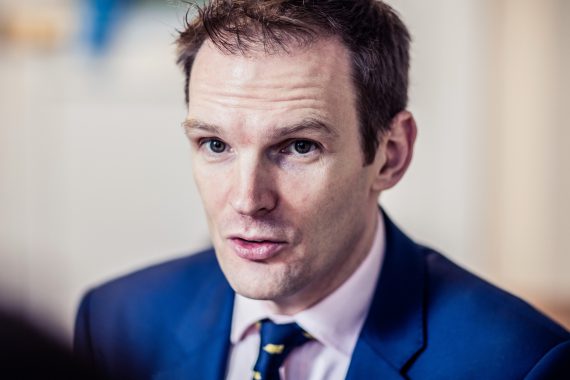Doctors’ morale is at its lowest for a decade, partly due to ‘unhelpful and inflammatory briefings’ made by the Department of Health during the junior doctors dispute, former health minister Dr Dan Poulter has claimed.
Speaking to Pulse, the former minister – who served under health secretary Jeremy Hunt until May 2015 – and practising junior doctor said that ‘pay restraint, increasing demand and an increasingly litigious working environment’ has contributed to poor morale.
He called for an end to the pay restraint, which has seen the DH limiting any awards to doctors to 1% per year following pay freezes in 2011-12 and 2012-13.
In a wide-ranging interview, Dr Poulter also called for:
- GPs and commissioners to work with local employers in hard-to-recruit regions to offer employment opportunities for GPs’ partners, to make relocation more attractive to families;
- An increase in taxes to fund the NHS, which he said cannot be made sustainable by savings alone;
- The Treasury to sufficiently fund Health Education England to ensure we have enough GPs and other shortage specialties.
He said: ‘If I’m honest, I think there has been some very unhelpful language that’s been used, particularly during the junior doctors’ strikes; some inflammatory language. I think some of the smearing of junior doctors came directly from the DH.
‘If you speak to people who were involved in the conflict they will be very aware of some of the unpleasant briefings that were going about during that dispute.
‘When you’ve got that backdrop of pay restraint, increasing demand and an increasingly litigious working environment, morale isn’t in a good place. It’s the lowest I can remember in my time working as a doctor over the past decade or so.’
Dr Poulter said that plans to make £22bn worth of savings were ‘more than ambitious’.
He added: ‘Most of those efficiency savings were delivered through wage restraint and that’s obviously not going to be sustainable going forward – it’s very difficult to continue reducing the wages of hardworking NHS staff in real terms on a long-term basis.
‘By 2020, we’ll have almost had a decade of pay restraint and that’s unprecedented in any service in the public or the private sector.’
A Department of Health spokesperson said: ‘These claims are without substance. We have set out plans to dramatically improve working conditions for junior doctors, including through better training, more support from consultants, more notice of future placements, reviewing the appraisals process and investing £10m to bring doctors back up to speed when they take time out to have a family or for other caring responsibilities.’
While he was health minister, Dr Poulter was criticised by GPs for claiming that out-of-hours services had been ‘scrapped’ by the Labour government. As a result, then-GPC negotiator Dr Peter Holden reported him to the GMC for ‘damaging the profession’.
Pulse October survey
Take our July 2025 survey to potentially win £1.000 worth of tokens














